Last-Minute NYC Holiday Gift Guide 🎁
We’ve created a holiday gift guide with presents for the intrepid New Yorker that should arrive just in time—


Neighbors and friends of northern Manhattan’s Fort Tryon Park, as well as devoted fans of New York City history, lined up this weekend to take a peek inside Fort Tryon Cottage, one of the last remnants of eccentric millionaire C.K.G. Billings’ estate, Fort Tryon Hall. The cottage once served as the gate house for the Billings property, which was the last country estate in Manhattan. It now functions as the northern Manhattan headquarters for the New York City Parks Department.
Thanks to Open House New York, the stucco-covered cottage opens its doors one weekend a year to booked-solid tours of the tiny dwelling.
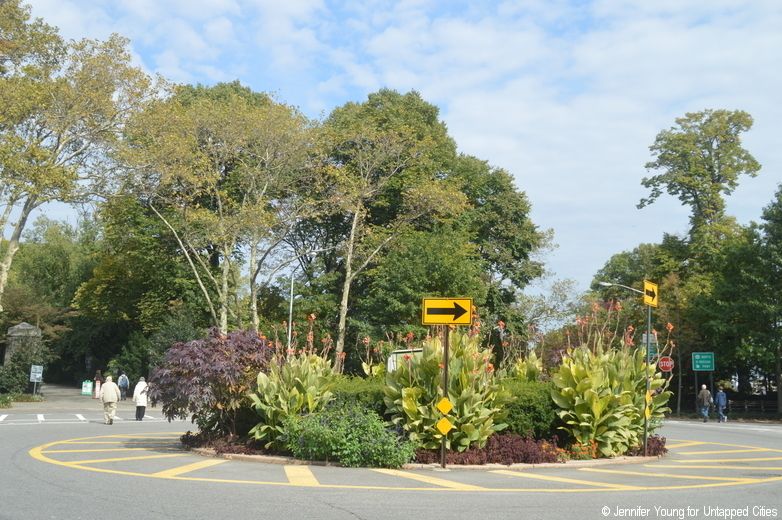 The entrance to Fort Tryon Park, with the cottage tucked just out of view on the left-hand side.
The entrance to Fort Tryon Park, with the cottage tucked just out of view on the left-hand side.
Robin Boomer, a ten-year resident of the neighborhood, regaled visitors with stories of Cornelius K.G. Billings, who, after retiring as president of the People’s Gas Light and Coke Company in Chicago in 1901 at the age of 40, moved to New York and began construction on what would briefly become the largest private property in Manhattan.
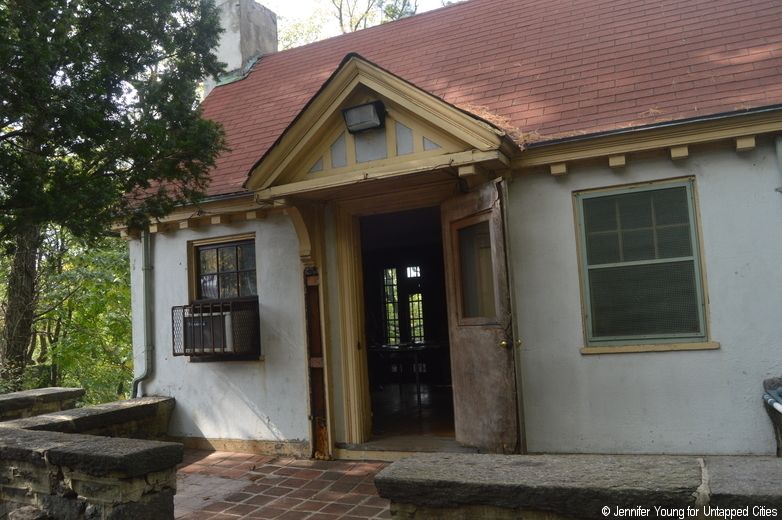
The three-story cottage appears deceptively small from its front entrance (above) but rises far above on the back side
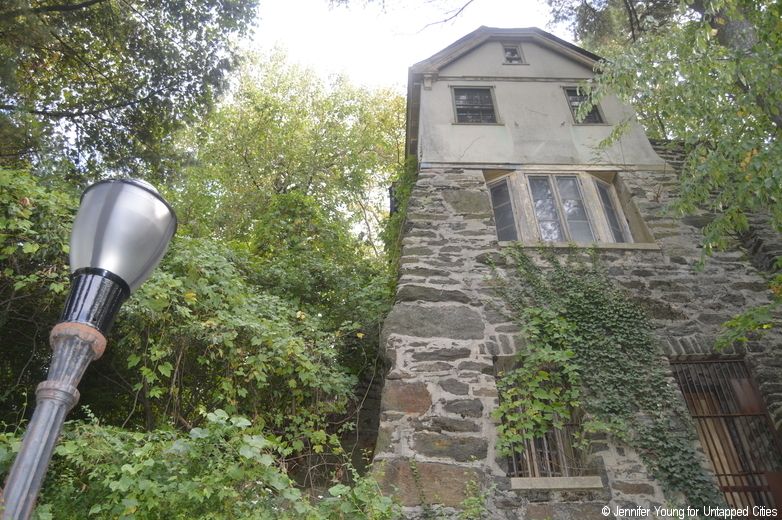
Heralded by the New York Times as “virtually a countryplace in the city,” Billings conceived of the estate initially as a convenient lodging attached to his stables, where he housed his beloved and extremely expensive race horses. Eventually, Billings fell in love with the view of the Hudson from this location, and with the convenience of an estate close to the city where he could keep both his horses and his yacht.
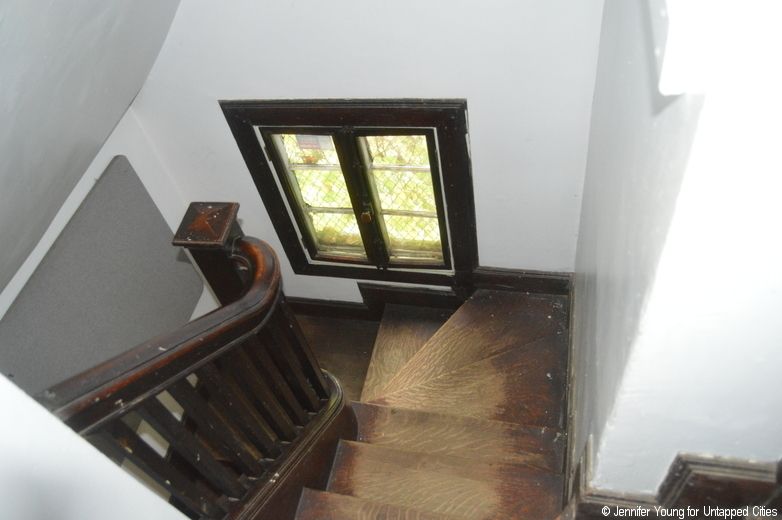
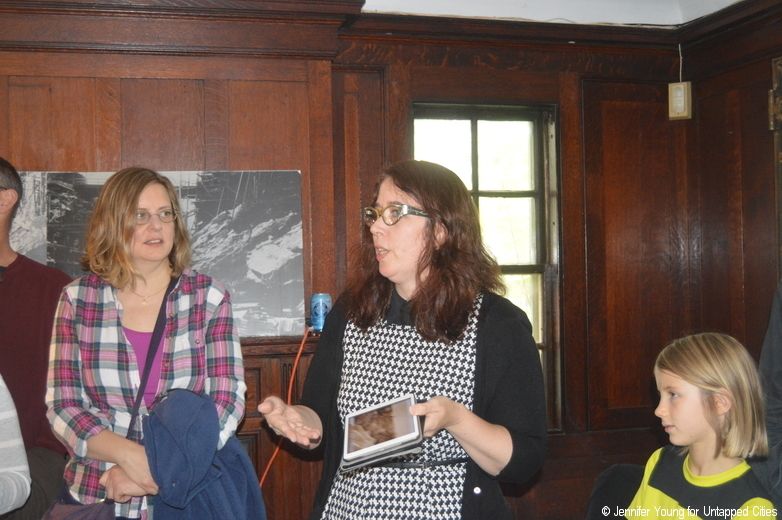
Local resident Robin Boomer recounts the history of the cottage to a packed room
Nonetheless, Billings grew bored with his playground after just ten years and decided to decamp to Fifth Avenue. In 1917, he sold the estate to John D. Rockefeller Jr., who turned the property into what would eventually become Fort Tryon Park. The mansion burned down in 1926, leaving only the cottage and the driveway, which originally cost $250,000, as a monument to Billings’ contribution to the excesses of the Gilded Age. Once the park was completed in 1935, the cottage housed the park’s superintendent and his family for several decades.
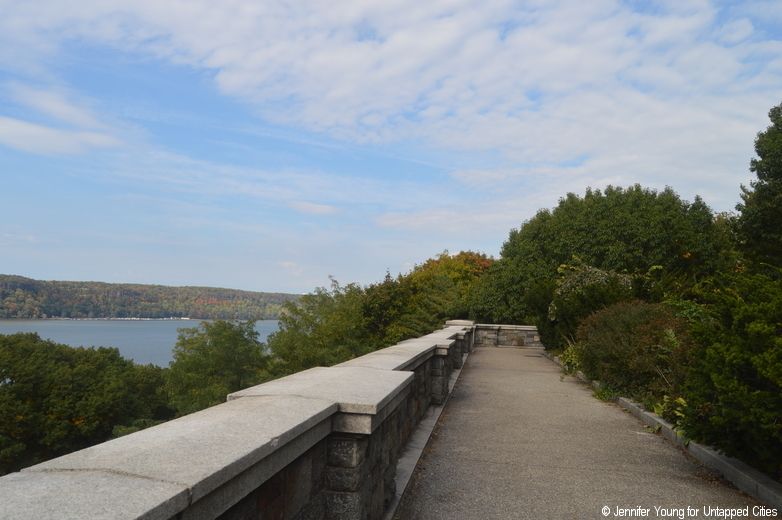
Spectacular views of the Hudson River are visible from both the cottage and the surrounding park
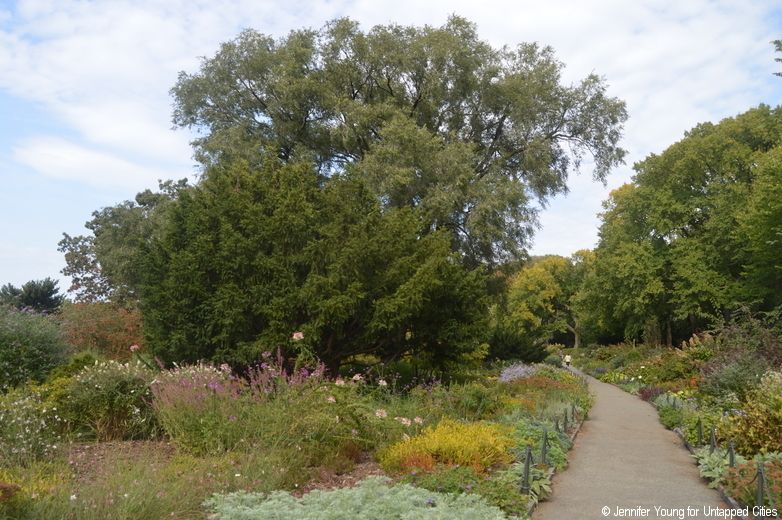
Fort Tryon Park was built by John D. Rockefeller, Jr.,after C.K.G. Billings sold the property.
Although the diminutive rooms might be described by a New York realtor as cozy, the cottage has three floors and includes a dining room, full kitchen, and a large bathtub, which makes it almost mansion-sized by current New York apartment standards. The cottage also includes a terrace with what the Parks Department proudly notes is probably the greatest office view in upper Manhattan. Few would disagree.
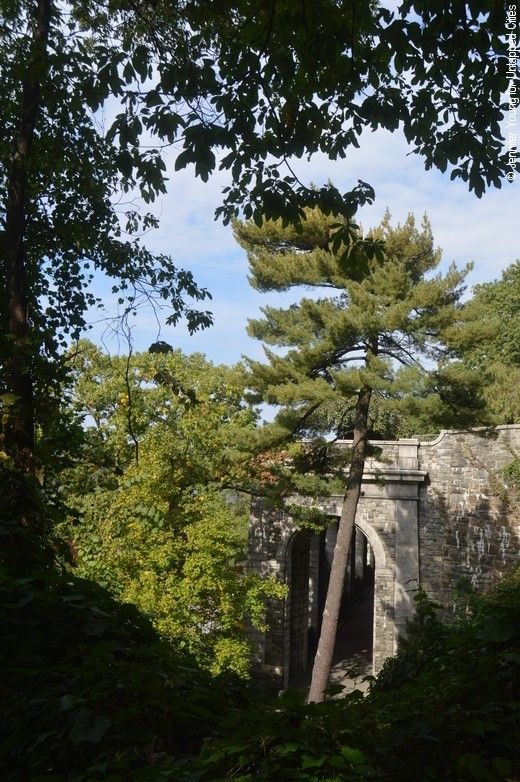
A look onto the arched driveway that still stands from the CKG Billings estate
Next, check out 6 lost mansions of the Upper West Side and Upper Manhattan.
Subscribe to our newsletter